第34章 CHAPTER XII A STROLL ON THE PINCIAN(2)
In the remoter depths, among the old groves of ilex-trees, Hilda and Kenyon heard the faint sound of music, laughter, and mingling voices. It was probably the uproar--spreading even so far as the walls of Rome, and growing faded and melancholy in its passage--of that wild sylvan merriment, which we have already attempted to describe. By and by it ceased--although the two listeners still tried to distinguish it between the bursts of nearer music from the military band. But there was no renewal of that distant mirth. Soon afterwards they saw a solitary figure advancing along one of the paths that lead from the obscurer part of the ground towards the gateway.
"Look! is it not Donatello?" said Hilda.
"He it is, beyond a doubt," replied the sculptor. "But how gravely he walks, and with what long looks behind him! He seems either very weary, or very sad. I should not hesitate to call it sadness, if Donatello were a creature capable of the sin and folly of low spirits. In all these hundred paces, while we have been watching him, he has not made one of those little caprioles in the air which are characteristic of his natural gait. I begin to doubt whether he is a veritable Faun.""Then," said Hilda, with perfect simplicity, "you have thought him--and do think him--one of that strange, wild, happy race of creatures, that used to laugh and sport in the woods, in the old, old times? So do I, indeed!
But I never quite believed, till now, that fauns existed anywhere but in poetry."The sculptor at first merely smiled. Then, as the idea took further possession of his mind, he laughed outright, and wished from the bottom of his heart (being in love with Hilda, though he had never told her so) that he could have rewarded or punished her for its pretty absurdity with a kiss.
"O Hilda, what a treasure of sweet faith and pure imagination you hide under that little straw hat!" cried he, at length. "A Faun! a Faun!
Great Pan is not dead, then, after all! The whole tribe of mythical creatures yet live in the moonlit seclusion of a young girl's fancy, and find it a lovelier abode and play-place, I doubt not, than their Arcadian haunts of yore. What bliss, if a man of marble, like myself, could stray thither, too!""Why do you laugh so?" asked Hilda, reddening; for she was a little disturbed at Kenyon's ridicule, however kindly expressed. "What can Ihave said, that you think so very foolish?"
"Well, not foolish, then," rejoined the sculptor, "but wiser, it may be, than I can fathom. Really, however, the idea does strike one as delightfully fresh, when we consider Donatello's position and external environment. Why, my dear Hilda, he is a Tuscan born, of an old noble race in that part of Italy; and he has a moss-grown tower among the Apennines, where he and his forefathers have dwelt, under their own vines and fig-trees, from an unknown antiquity. His boyish passion for Miriam has introduced him familiarly to our little circle; and our republican and artistic simplicity of intercourse has included this young Italian, on the same terms as one of ourselves. But, if we paid due respect to rank and title, we should bend reverentially to Donatello, and salute him as his Excellency the Count di Monte Beni.""That is a droll idea, much droller than his being a Faun!" said Hilda, laughing in her turn. "This does not quite satisfy me, however, especially as you yourself recognized and acknowledged his wonderful resemblance to the statue.""Except as regards the pointed ears," said Kenyon; adding, aside, "and one other little peculiarity, generally observable in the statues of fauns.""As for his Excellency the Count di Monte Beni's ears," replied Hilda, smiling again at the dignity with which this title invested their playful friend, "you know we could never see their shape, on account of his clustering curls. Nay, I remember, he once started back, as shyly as a wild deer, when Miriam made a pretence of examining them. How do you explain that?""O, I certainly shall not contend against such a weight of evidence, the fact of his faunship being otherwise so probable," answered the sculptor, still hardly retaining his gravity. "Faun or not, Donatello or the Count di Monte Beni--is a singularly wild creature, and, as I have remarked on other occasions, though very gentle, does not love to be touched.
Speaking in no harsh sense, there is a great deal of animal nature in him, as if he had been born in the woods, and had run wild all his childhood, and were as yet but imperfectly domesticated. Life, even in our day, is very simple and unsophisticated in some of the shaggy nooks of the Apennines.""It annoys me very much," said Hilda, "this inclination, which most people have, to explain away the wonder and the mystery out of everything. Why could not you allow me--and yourself, too--the satisfaction of thinking him a Faun?""Pray keep your belief, dear Hilda, if it makes you any happier," said the sculptor; "and I shall do my best to become a convert. Donatello has asked me to spend the summer with him, in his ancestral tower, where Ipurpose investigating the pedigree of these sylvan counts, his forefathers;and if their shadows beckon me into dreamland, I shall willingly follow.
By the bye, speaking of Donatello, there is a point on which I should like to be enlightened.""Can I help you, then?" said Hilda, in answer to his look.
"Is there the slightest chance of his winning Miriam's affections?"suggested Kenyon.
"Miriam! she, so accomplished and gifted!" exclaimed Hilda; "and he, a rude, uncultivated boy! No, no, no!""It would seem impossible," said the sculptor. "But, on the other hand, a gifted woman flings away her affections so unaccountably, sometimes!